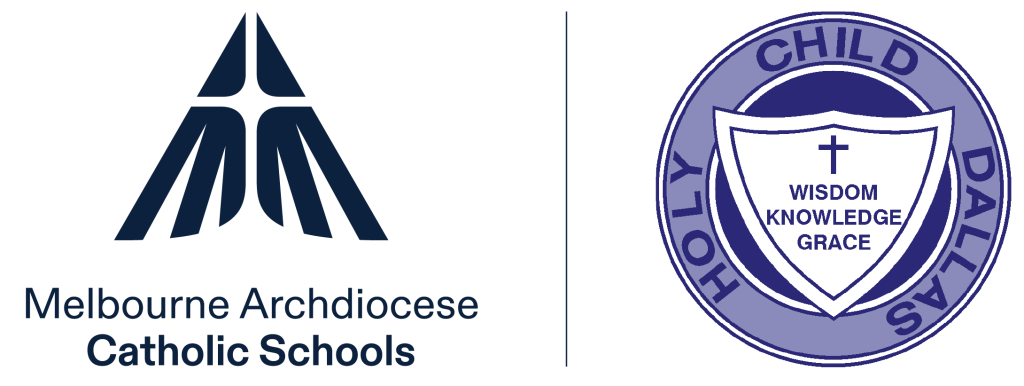Holy Child Catholic Primary School is a diverse learning community where students, staff and families work together in educational partnership, to achieve success for all learners.
At Holy Child, we have a student-centred pedagogy.
We believe students learn best:
- when the classroom climate is safe, calm and respectful, so that students are safe, happy and ready to learn
- when the learning is engaging and the teaching is explicit
- when the learning is differentiated and driven by student needs
- where building teacher capacity is valued and embedded into our school culture
- when student success is encouraged and celebrated
- providing learning intervention to support learners who require extra assistance.
Student engagement is the driver of learning and teaching at Holy Child. We are committed to engaging learners through strategies of differentiation, personalisation and academic rigor. The wellbeing of the learner is always at the heart of our practice. At Holy Child, teachers know their students and respond to their social, emotional, cognitive and spiritual needs.
Holy Child Primary school is an evidence-based learning school. We are committed to planning engaging differentiated learning experiences that draw upon multiple sources of data to form the evidence base. Our teaching is intentional and purposeful to provide a rich and relevant curriculum. Teachers plan collaboratively based on evidence of student learning. Daily assessments are collected that reflect what a student can ‘do, say, make and write”. This evidence informs all future planning.
Teaching at Holy Child Catholic Primary School engages student’s strengths to promote and develop the dispositions of creativity, collaboration, persistence, self-management, curiosity, adaptability and open-mindedness.
The children at Holy Child participate in an Inquiry Approach to teaching and learning, providing them with the opportunity to develop as lifelong learners who have the capacity to think and know how to learn.
In the inquiry, based classroom there is increased emphasis on real life situations, decision-making, problem solving, research and action with the Catholic Church’s perspective. Learners are actively:
- exploring, wondering and questioning
- experimenting and playing with possibilities
- making connections between previous learning and current learning
- making predictions and acting purposefully to see what happens
- collecting data and reporting findings
- clarifying existing ideas and reappraising perceptions of a concept
- deepening understanding through the application of a concept
- making and testing theories
- researching and seeking information
- solving problems in a variety of ways.
Time Allocations for Key Learning Areas
| Religious Education | three hours, five days a week |
| English | 8-10 hours, five days a week |
| Mathematics | Five hours, five days a week |
| LOTE | 60 minutes per week |
| The Arts (Performing Arts and Creative Literature) | 60 minute over twenty weeks per semester |
| Physical Education | two hours, five days a week This allocation is adjusted accordingly to meet the requirements of extra programs being held throughout the year (e.g. interschool sports) |
| Religious Education
English Mathematics Science & Humanities (Geography, History, Civics & Citizenship, Economics & Business, Digital Technologies, Design and Technologies) Health and Physical Education Capabilities
|
The remaining key learning areas are allocated the remainder of available hours for all P-6 classes each 5 day week and are explicitly planned for integration into the Inquiry focus for that term. |

